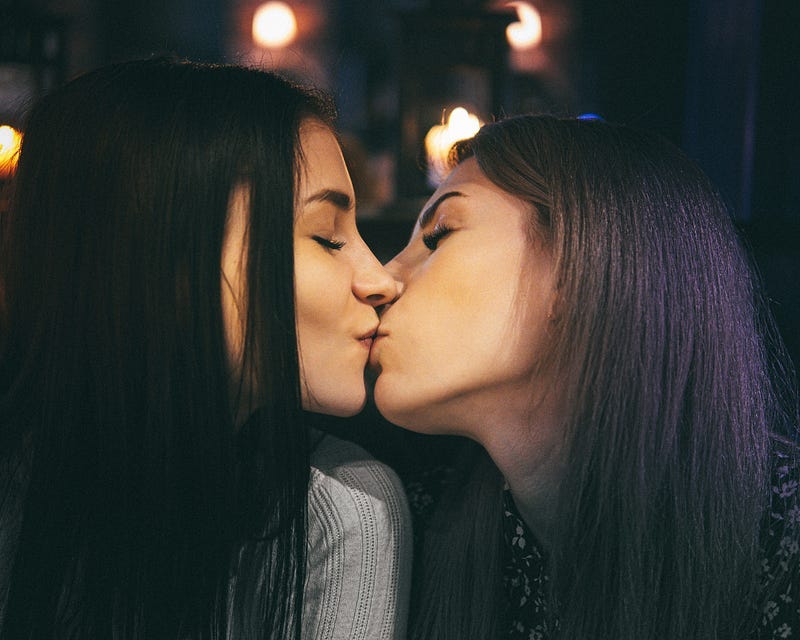The Connective Magic of “Attunement” in Relationships
Relationships are quite literally about the exchange of energy. In this case, the word “Energy” describes the biological and physiological…
Relationships are quite literally about the exchange of energy. In this case, the word “Energy” describes the biological and physiological states of the body. We experience changes in our biological and physiological states as “feelings”.
In life, we must move between feeling states and emotions.
We move from high-energy states to low-energy states, and from low-energy states to high-energy states. Life “feels right” when in a flow state, contextually situated between low and high energy states.
This is the Goldilocks zone; when we are not “too hot” or “too cold”, but feel “just right”. When we experience flow, our emotional state reflects feelings associated with meaning, fulfillment, and purpose.
As an adult, we are constantly trying to manage our emotions and our energy. If we are bored, underwhelmed, or uninspired, we search for things that give us energy and make us feel alive. If we are anxious, jittery, irritable, or on edge, we look for things to ground us and make us feel settled.
While we can regulate our own emotions, it turns out that the most potent form of emotional regulation comes from another person. In a perfect world, we attempt to manage our own feelings, but we call on others to powerfully support our emotional regulation.
The most valuable thing that one person can do for another is to support them in regulating their energy states such that they can return to or maintain a “flow state”. We look to our loved ones to give us energy when we feel low, or to help relax our energy when we are feeling too high.
When someone else helps us achieve that state of being “just right”, we associate them with those same feelings of meaning, purpose, and fulfillment.
In other words, we connect with those who help us to maintain our “flow state”. Relationships with those who help us to maintain that ideal energetic state feel profound and deeply meaningful.
In fact, this is often a necessary ingredient of what it means to be “in Love”; that the attachment is emotionally regulating and that this regulation supports the individual in the accomplishment and maintenance of an internal “flow state”.
We associate that person with what it’s like to feel “just right”.
In adulthood, romantic relationships are the most potent kind of connection; though it can be accomplished through family, friends, community, and other meaningful relationships as well.
The key to connection in relationships, then, is Attunement; the process by which we connect with others on an emotional level and support them in achieving flow.
The process of Attunement:
1) Attend to the other person; intuit or “feel” their “energy”. To do this you merely need to have a mindful and present-centered focus on another person.
2) Empathize; attempt to match your “energy” to theirs. If they are in a high-energy state, then you might upregulate your emotional state to meet them. Likewise, if they are in a low-energy state, you might relax to meet them.
3) Synchronize; remain in a similar state for the other person. The longer you hold attention and maintain empathy, the deeper and more stable the “connection” will be.
At the point of synchronization, you can play a role in regulating the other person. If you now raise your energy gradually, their energy will increase with yours. If you lower your energy gradually, their energy will decrease in kind. And if you maintain your energy, their energy will remain more stable.
Emphasis on gradual. Jumping from one state to the next too quickly might break the attuned state; which can be rather jarring for both people involved.
The goal, ultimately, is to support the other person in moving from whatever state they are in towards that ideal “flow state”. Or, if they are already in that flow state, helping them to maintain that state.
We value relationships that can meet us where we are, uplift us when we are low, and help ground us when we are too high. When someone else helps us find that “flow state”; that goldilocks state of being “just right”, we find ourselves growing deeply connected to that person.
We also find connection in the moments when we are misattuned but then repair or re-establish connection. People will inevitably be on different pages, have different perspectives, or otherwise find themselves out-of-sync; we feel securely attached to another person when we are confident that we can reconnect with someone even when we are out-of-sync.
But the opposite is also true; we feel less connected to those who routinely fail to regulate us towards an ideal state, passively or actively dysregulate us, or knock us out of the flow state. If one or both individuals fail to regulate one another in a relationship over time and opportunities to get back in sync and reconnect also fail we will inevitably “fall out of love”.
We must learn how to uplift others when they are low, and how to ground others when they are too high. And we must trust that our partner is capable of doing the same for us.
Likewise, each individual in a relationship must be able to accomplish attunement to support the other. If one person is doing all of the attuning and all of the supporting, the relationship becomes increasingly unbalanced. In a perfect world, a win-win scenario, two people mutually benefit from a relationship by helping to support one another.
Attunement and “Attachment States”
There is a lot of talk about “attachment styles”, but in the scope of relationships, it may be just as important to talk about attachment states. Different relationships manifest different dynamics where we feel either securely, anxiously, or avoidantly attached to another person.
The internet is absolutely flooded with information about these trendy “attachment styles”, but in the most simple terms, these are the four states of attachment in a relationship:
Secure ~ Feel some sense of confidence that they can dependably regulate their own emotions and can depend on their partner to support them in the process of their regulation.
Anxious ~ Don’t feel like they can dependably regulate their emotions on their own and depend on their partner to regulate their emotions for them.
Avoidant ~ Don’t feel like their partner can dependably support them in regulating their emotions and thus must hyperindependently regulate their emotions.
Dismissive/Disoriented ~ Lack of confidence that one can manage their own emotions and also disbelief that their partner can help them regulate their own emotions.
In a perfect world, two individuals would always feel confident that they can regulate their own emotions while also feeling confident that their partner or significant others can support them.
But the world is rarely perfect and relationships can be messy.
As we get to know someone, we learn how much we can depend on our partner when we are dysregulated.
If we learn that we can’t trust our partner with our emotions, we become increasingly avoidant.
If we feel as though we can trust our partner with our emotions, but they do so infrequently or inconsistently, we become increasingly anxious.
Each time there is a rupture in the relationship that is not repaired; or a disconnection that is not later reconnected, the relationship becomes increasingly dismissive.
Avoidant, anxious, and dismissive states in a relationship become points of stress and contention, and if not attended to, become resentment, contempt, the loss of respect, and the death of attraction. Being in a relationship feels more and more like “work”. Like rust or acid, these states slowly chip away at the structure of a relationship until things fall apart.
Two individuals, thus, must continue to attend and attune to their partner; creating ongoing opportunities to achieve secure states with one another.
Attunement, thus, is an essential nutrient of a relationship. Just like you have to work out and eat healthy to maintain your body, maintaining a relationship requires a dedicated effort. Like any discipline, we can train our ability to attune and get better at it. This ultimately strengthens relationships; making them stronger over time.
In a secure relationship, as two people are “getting to know each other”, they master the art of attending to the other person like a skillful dancer learning choreography or a competent athlete playing their sport! These things seem much less like “work” and far more like “play”.
They say “If you love what you do, you’ll never work a day in your life”, and the same can be said for relationships!




